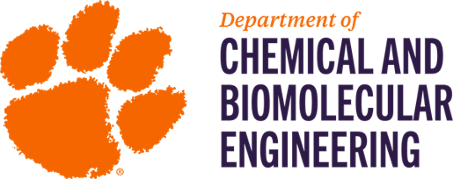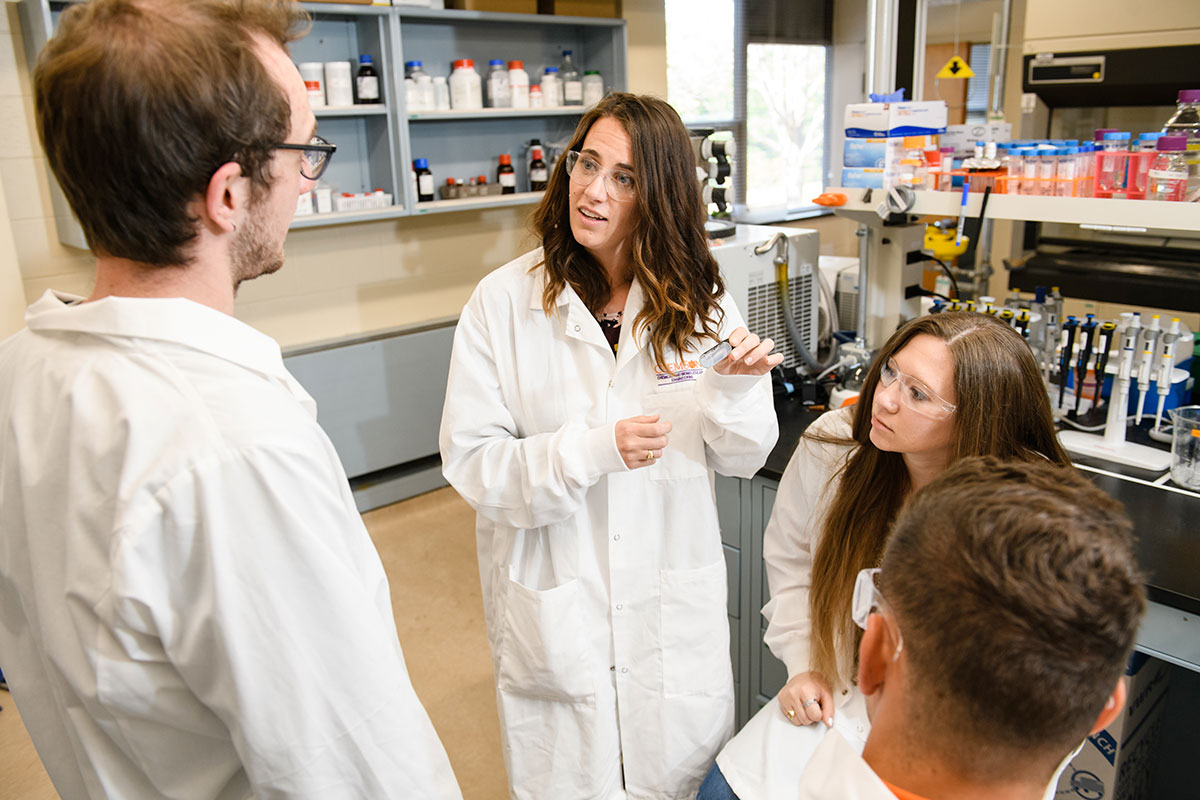
Chemical Engineering Summer Program

The Department of Chemical and Biomolecular Engineering at Clemson University offers various courses over the summer terms, either online synchronous or asynchronous, in-person, or mixed format. Chemical engineering Laboratory courses are offered in person only.
Taking a course over the summer term can help you: Stay on track and graduate on time; lighten your load for the Fall or Spring terms; focus on a challenging or exciting course; earn credit toward a graduate degree; learn from anywhere!
Undergraduate Students: Did you have a tough semester and want to catch up? Or do you want to get ahead and possibly graduate early? We have various course options to meet your needs.
Graduate Students and Industry Partners: Do you want to lighten your Fall and Spring term course loads, or are you starting a new job with Reactors or learning to control your processes better? We offer courses to address reaction kinetics and reactor design and process dynamics and control (courses may vary from year to year).
Enrollment for CU students begins April 21, 2023, via iRoar. The Summer Calendar 2023 details important academic dates.
Undergraduate students in good standing at Regionally Accredited Institutions in the United States who wish to enroll in summer classes at Clemson University can apply as transient students.
ChBE Course Catalog-
Summer Courses
Chemical Engineering Summer Courses Course Instructor Format CHE 1300 - Introduction to Chemical Engineering Norfolk Online, asynchronous CHE 3070 - Unit Operations Laboratory I Norfolk In-person, lab required CHE 3210 - Chemical Engineering Thermodynamics II Davis In-person/online CHE 3300 - Mass Transfer and Separations Bruce In-person/online CHE 4070 - Unit Operations Laboratory II Norfolk In-person, lab required CHE 4500/6500 - Chemical Reaction Engineering Alba-Rubio Online, sync, asynchronous CHE 4530/6530 - Process Dynamics and Control Roberts Online, sync, asynchronous Courses Offered Other Years: CHE 3190 - Engineering Materials
-
Brief Summary of Course Offerings
CHE 1300: Introduction to Chemical Engineering A first course in Chemical Engineering introduces key concepts like materials balances and builds critical problem-solving skills. The course also includes an introduction to basic computer programming, with examples from the Chemical Engineering curriculum. (Online, asynchronous)
CHE 3070: Unit Operations Laboratory I This hands-on course offers a transformative experience, giving students experience in professional engineering practices, technical communication in a plant environment, and data analysis. The laboratory is built on pilot-scale equipment, which looks and functions like equipment in industrial plants. Experiments build on knowledge from earlier engineering courses, including fluid flow, heat exchange, and introductory thermodynamics. (In-person)
CHE 3210: Chemical Engineering Thermodynamics II Topics include thermodynamics of power cycles and refrigeration/liquefaction, thermodynamic properties of homogeneous mixtures, phase equilibria, and chemical reaction equilibria. (In person, online, synchronous and asynchronous)
CHE 3300: Mass Transfer and Separation Processes Study of mass transport fundamentals and application of these fundamentals to separation technologies, emphasizing gas absorption, stripping, distillation, and liquid-liquid extraction. (In person, online, synchronous and asynchronous)
CHE 4070: Unit Operations Laboratory II Further hands-on experience in professional engineering practices, building on knowledge from earlier engineering courses, focusing on separation technologies, a key differentiator for chemical engineers. (In-person)
CHE 4500/CHE 6500: Chemical Reaction Engineering/Chemical Reactor Design Chemical Reaction Engineering sets Chemical Engineers apart from other engineering disciplines. Here we combine our knowledge of chemistry and kinetics with our skills in material and energy balances, thermodynamics, transport, and engineering problem-solving to learn how to design chemical reactors. (In-person and online, synchronous and asynchronous)
CHE 4530/6530: Process Dynamics and Controls This course offers a combined practical and theoretical approach to process control for chemical and biological processes. Course participants will learn about the mathematical analysis of dynamic processes, basic automatic control theory, and the design of control systems for process applications. (In-person and online, synchronous and asynchronous)
CHE 3190: Engineering Materials A course in the basics of materials science & engineering from a chemical engineering perspective. Topics include many classes of materials (metals, ceramics, and polymers), processing, and essential issues like corrosion. (Online, asynchronous)
